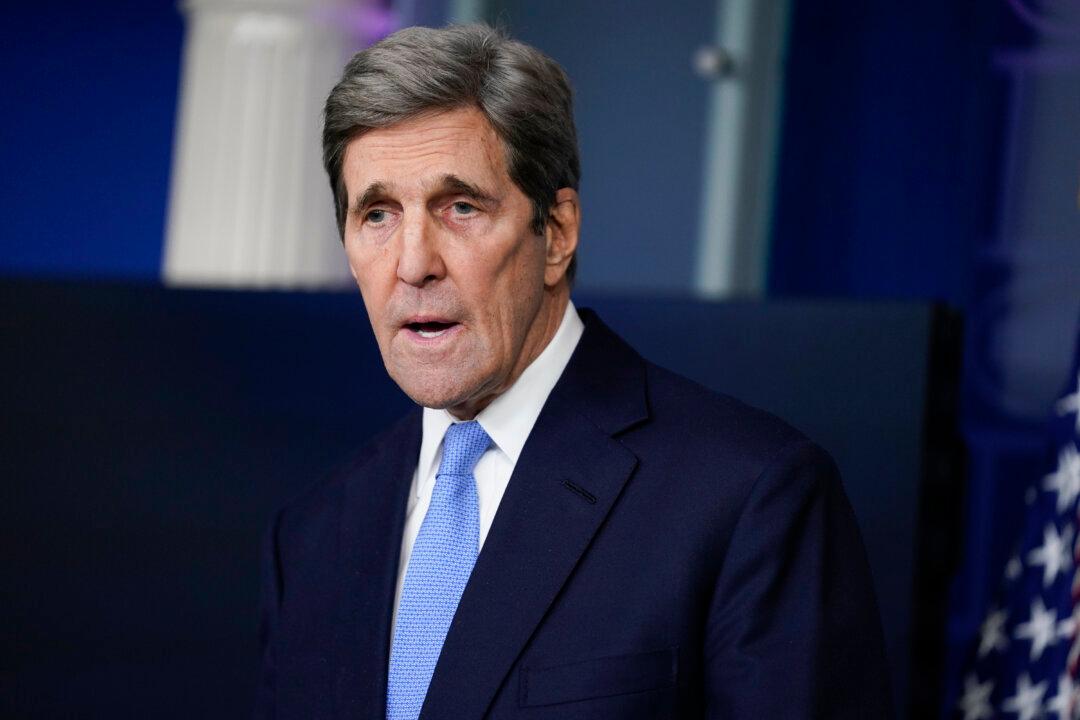U.S. Special Climate Envoy John Kerry on Monday denied allegations stemming from leaked audio that suggested he disclosed the number of Israeli attacks on Iranian targets to Iranian Foreign Minister Mohammad Javad Zarif.
“I can tell you that this story and these allegations are unequivocally false. This never happened—either when I was Secretary of State or since,” Kerry wrote on Twitter.





